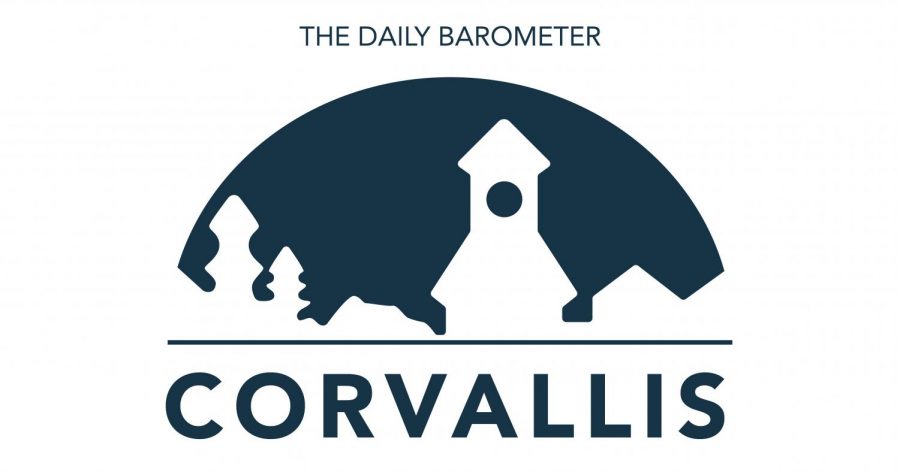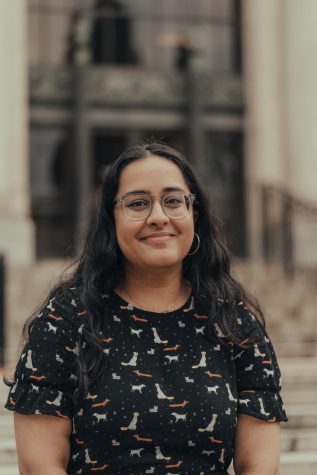Wildfires cause ‘influx of displaced families’ in Corvallis, businesses still hit hard
September 18, 2020
Local businesses in Corvallis, Ore. are still adapting to the impact of COVID-19 as wildfires continue to spread across the state, causing many businesses to reevaluate and change current systems.
Simon Date, president and CEO of the Corvallis Chamber of Commerce, said in an email that working with local businesses has been frustrating because he hates to see the struggles of community members and business due to COVID-19.
Date said via email the virus had effectively shut down the tourism and visitor count, but due to wildfires, those rates are increasing again.
“As tragic a reason as it is, Corvallis has seen an influx of displaced families using the hotels and various lodging options in and around town, which has increased business for those who are in a position to help,” Date said via email.
When COVID-19 hit, many businesses adapted by implementing outdoor seating arrangements, which Date said via email was excellent because it gave customers options and allowed businesses to increase capacity and in turn, revenue.
One of the businesses that implemented outdoor seating is TacoVino, a restaurant off of Northwest Monroe Avenue, which shut down for about seven weeks in the middle of March due to COVID-19.
John Sobolewsky, one of the owners of TacoVino, noted that COVID-19 had reduced their capacity to seat clientele, but said they feel very fortunate that everyone is healthy, excited to return to work, and supported by the community.
“We added a to-go business because people feel safer eating at home, so that’s kind of been like opening a whole new business inside of a business,” Sobolewsky said. “So that’s a challenge when you have to shift gears, and then you’re adding something new, trying to figure out how to manage orders coming in, [and] trying to manage deliveries. We’ve never had to figure that out before.”
He added that the city allowed a lot of businesses to take over parking areas, which enabled them to add a few more tables outside of the restaurant for seating.
However, the recent wildfires and unhealthy air quality have prevented Corvallis businesses from fully utilizing those outdoor seating plans, causing many to rely solely on online options. TacoVino’s outdoor dining area has now been shut down for over a week.
“I think the biggest shift we’ve seen is businesses adapting their online capabilities,” Date said via email. “Whether it be delivery, non-contact curb-side pickup, or customer pick-up-and-go, businesses have been very creative so that their customers can still shop.”
Sobolewsky noted that TacoVino was at approximately 60% outdoor seating capacity before the wildfires, but is hopeful their online and to-go options will supplement lost revenue.
Though they are facing difficult times, Sobolewsky said they are making the best of it.
“In Corvallis we’re fortunate… so many people have been impacted; it’s awful to see these small towns and so many people lose property and loved ones and livestock, and all the million acres burned is unbelievably horrible,” Sobolewsky said. “So for us just to have a little business impact is no big deal… There’s a bigger picture, and we’re certainly aware of that. I think that on the whole, it’s another blip in the kind of struggles we’ve all faced this year.”
Businesses other than restaurants have also been affected by the wildfires, as the unhealthy air quality impacts any business that moved their services outdoors to accommodate social distancing guidelines.
Gillian Stephenson, a fourth year graphic design student at Oregon State University and a karate instructor at Aurora Martial Arts in Corvallis, teaches kids martial arts skills.
“I taught adults pre-COVID, but we have changed our schedule since then so I no longer teach adults,” Stephenson said in an email. “I am now coaching kids, [and] honestly a lot of [it is] telling kids where to stand and ‘leave your mask alone’ and ‘drink water’ to keep them safe, socially distanced and hydrated especially in a hot dry summer.”
Stephenson said via email that COVID-19 has majorly impacted most aspects of her job, which relies on the interaction between clients and instructors. Now, they utilize a hybrid system that splits the staff between teaching live or in a virtual manner.
“We were teaching outdoors before the fires so that we could have the best airflow, even if it was getting hot sometimes,” Stephenson said via email. “With the fires we obviously have to go back in, which has been a bit difficult since we’re heavily limiting people, such as parents, inside the space. Luckily I believe no one has been directly impacted by the fires beyond smoke and general fear [and] anxiety around it.”
In Corvallis, Date said via email, despite everything going on, businesses are supporting each other more than ever, and there continues to be a sense of community and people willing to help each other out.
“No-one is doing well, or enjoying the experience of COVID-19 or the wildfires, but Corvallis is resilient and we support one another tremendously,” Date said via email. “To have a city, county, and organizations like ours all pulling in the same direction is not something you see very often. We’ll get through this together.”











































































































